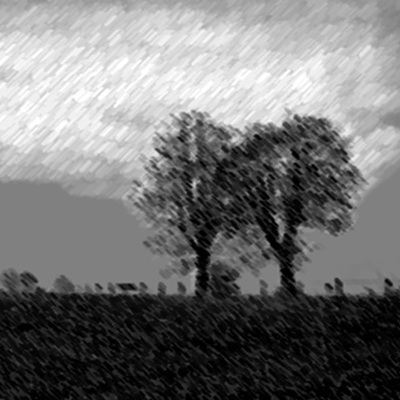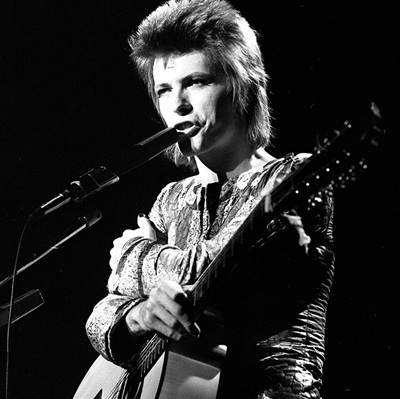.
.
For over twenty years, publishing quality jazz-themed fiction has been a mission of Jerry Jazz Musician. Hundreds of short stories have appeared on the pages of this website, most all of which can be accessed by clicking here.
A substantial number of novels and stories with jazz music as a component of the story have been published over the years, and the scholar David J. Rife has written short essay/reviews of them, which he has compiled in two valuable resources, Jazz Fiction: A History and Comprehensive Reader’s Guide (2008), and a recently published sequel, Jazz Fiction: Take Two. (Several of the stories published on Jerry Jazz Musician are included).
Rife’s work is impressive and worth sharing with Jerry Jazz Musician readers. With his cooperation, essay/review excerpts from Take Two will be published on a regular basis.
In this edition, Rife writes about four novels/short stories that include stories involving relationships between fathers and children.
.
.
___
.
.
.
…..Jazz Fiction: Take Two is the sequel to Jazz Fiction: A History and Comprehensive Reader’s Guide (2008). The earlier work filled a pressing need in jazz studies by identifying and discussing 700 works of fiction with a jazz component.
…..This work picks up where that one left off, around the turn of the 21st century, and surveys over 500 works of jazz-inflected fiction that have appeared since. None of these works, to my knowledge, have been discussed in this context.
…..The essay-reviews at the center of the book are designed to give readers a sense of the plots of the works in question and to characterize their debt to jazz. The entries were written with both the general reader and the scholar in mind and are intended to entertain as well as inform. This alone should qualify Jazz Fiction: Take Two as an unusual and useful reference resource.
.
-David J. Rife
.
.
___
.
.
In this edition, Rife writes about four novels/short stories that include stories involving relationships between fathers and children.
.
.
…..A lovely, warm—soulful—novel targeted for a middle school audience. The narrator is an old man looking back at his much younger self when he, 9-year-old Danny Bolden, buried his grandmother (having lost his parents when he was still a baby) and hopped a train that turned out to be the conveyance of Duke Ellington and His Famous Orchestra. Instead of being booted off, Danny is welcomed into this family of exceptional musicians, with Ellington becoming his surrogate father. Through this association Danny experiences a life that would be the envy of any young person, let alone a backwoods Black orphan from Georgia. He is introduced to the wonders of Washington, D.C., New York, California, and Europe, including a brief but harrowing stop in Nazi Germany. At first Danny earns his keep by looking after the musicians’ equipment, at the same time learning to play the trumpet; later, Ellington makes him his musical copyist, a position he holds until the great man’s death. Danny is always in the company of musicians, who look after him and teach him the ways of the world. Particularly well presented are Rex Stewart, Johnny “Rabbit” Hodges, Ivie Anderson, and the Duke himself, who comes off as generous spirited, egalitarian, and elegant. Although questions of racism and bigotry inevitably arise, they are handled with care. The book contains brief, helpful appendices, including a timeline for Ellington’s life, an annotated roster of the musicians in the orchestra, and a list of the songs alluded to in the book with recording information.
.
.
_____
.
.
…..Most of Michael Connelly’s stories are spiced with references to jazz, and the author has thoughtfully provided a guide to its occurrences in “The Music in the Novels.” Since it would be futile (and wearying) to call attention to the scattering of references to jazz and its musicians in each of Connelly’s twenty-plus commodious procedurals, I will limit myself to those, like this one, in which jazz enriches the narrative.
…..The Black Box begins 20 years before the novel’s time-present during the 1992 LA riots when Bosch and a colleague are summoned to the scene of a murdered female photojournalist whose body was found near a burned-out store. The Riot Task Force takes over the case but, amid the chaos of the times, soon lets it lapse. Now, two decades later, Bosch revisits the case, and with the instrumental help of modern technology finds a connection between it and three other killings. As usual, he is relentless in following the clues and his well-honed intuition to a satisfactory conclusion.
…..For jazz content, Black Box offers a pleasing variety (though perhaps insufficient quantity for some jazz fiction lovers), starting with an acknowledgment to the widow of one of Bosch’s (and Connelly’s) favorite artists, Art Pepper, and moving to dedications to his inspirations, Pepper and Frank Morgan. Within the novel proper Bosch engages in several exchanges with friends that center on jazz. One of these concerns Bosch’s unfamiliarity with the current musical scene, especially neo-bop; another portrays an open-ended jazz trivia game Bosch plays whenever he sees a certain buddy. For instance, when Bosch throws out the clue “Grace Kelly,” his buddy immediately answers that the saxophonist in question is not the princess but the sensational Asian prodigy who had already, by age 16, recorded with two of her famous mentors, Lee Konitz and Phil Woods. Jazz geeks will be titillated by such banter and wish there was more.
…..But by far the most important contribution of music to the story is the way it serves to deepen the bond between Bosch and his 16-year-old daughter Maddie, who thrills and moves her dad by presenting him with a birthday present of an extensive set of previously unreleased recordings of his soulful saxophone hero, Art Pepper, Unreleased Art. This poignant gesture not only portends a closer relationship between Bosch and his motherless child but encourages him to hope his love of jazz might rub off on her. He plays Pepper’s valentine to his own daughter, “Patricia,” to show how emotion can be channeled through music. And when he’s home going over paperwork or in his car listening to his new treasure trove, he reflects on the meaning of the music to him:
…..It was during Pepper’s comeback period after the years of drug addiction and incarceration. On this night in 1981 he had everything working for him. On this one song, Bosch believed he was proving that no one would ever play better. Harry wasn’t exactly sure what the word ethereal meant, but it was the word that came to mind. The song was perfect, the saxophone was perfect, the Interplay and communication between Pepper and his three bandmates was as perfect and orchestrated as the movement of four fingers on a hand. There were a lot of words to describe jazz music. Bosch had read them over the years in the magazines and in the liner notes of records. He didn’t always understand them. He just knew what he liked and this was it. Powerful and relentless and sometimes sad.
…..Alas, Bosch’s dog Coltrane doesn’t make an appearance in this book.
.
.
_____
.
.
…..Jilted at the altar, young WW2 vet Franky Fritz is left with a smart tuxedo, his beloved Conn Wonder cornet, a burning desire to become a successful musician and band leader, and—a year later—an infant daughter he didn’t know he had fathered. So plucky Franky builds a band and bullheadedly insists they pursue fame and fortune by performing old-timey New Orleans jazz rather than the much more popular big band music that was sweeping the land (and that his own band members preferred to play). Luckily, Franky hires a singer, Bobbi, who not only creates an appealing chemistry onstage but willingly serves as surrogate mom for Franky’s daughter Ariel. Against logic, the band prospers over time and Franky is lauded for his artistry:
…..His playing was so potent that on occasion respected musicians from regions the band played might stop in and catch a gig. Often they would award the man in the tux the compliment of all compliments for a jazz player. ‘He’s one bad motherfucker.’
…..But just as Franky basks in success, rock ‘n’ roll comes to town, so to speak, bursting Franky’s bubble and making jazz of every variety obsolete. To make matters worse, Ariel, by now a young woman, runs off with—horror of horrors!—a rocker. But not to worry: thanks to Bobbi’s clear-headed generosity of spirit, everything turns out just fine. Love prevails in the end, and Franky won’t have to worry about being abandoned at the altar a second time or about losing his beloved daughter, either. This good-natured novel has high jazz content, with Franky’s idol Bix Beiderbecke looking smilingly down from jazz all-star heaven as the musicians struggle to attain excellence. The arduousness and unpredictability of life on the road and the scenes of the orchestra in performance are particularly well presented.
.
.
_____
.
.
…..After Jonathan’s dad (a grease-monkey in small town Iowa by day) was dubbed “the reincarnation of Chet Baker” by the likes of Freddie Hubbard and Stan Getz, he turned in his tools, abandoned his family, and embarked on a worldwide tour whence he never returned. Twenty or so years later, Jonathan—out of curiosity—tracked his dad down in Amsterdam where he could also pay homage to Chet Baker. Like his dad and Baker, Jonathan was a musician (rock guitar) and a junkie (heroin). His meeting with his dad was predictably painful, especially since it turned much more on dope than music. The story contains a very solid description of Jonathan’s dad and his combo in performance, with the dad showing shocking signs of premature aging (like Baker before him).
.
___
.
.
Click here to read “Ballad,” Lúcia Leão’s winning story in the 65th Jerry Jazz Musician Short Fiction Contest
Click here to read more short fiction published on Jerry Jazz Musician
Click here to read The Sunday Poem
Click here for information about how to submit your poetry or short fiction
Click here for details about the upcoming 66th Jerry Jazz Musician Short Fiction Contest
Click here to subscribe to the Jerry Jazz Musician quarterly newsletter (it’s free)
Click here to help support the continuing publication of Jerry Jazz Musician, and to keep it ad and commercial-free (thank you!)
.
.
___
.
.
Jerry Jazz Musician…human produced (and AI-free) since 1999
.
.
.
















































